Delta County; Michigan’s Upper Peninsula (September 2000)
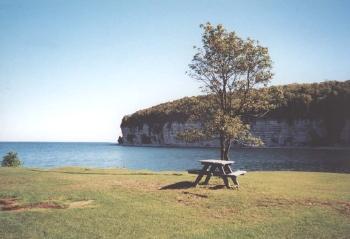
We drove along scenic shoreline through Michigan’s Upper Peninsula between Manistique and Escanaba on U.S. Route 2. It to just a short detour down Lake Michigan’s Garden Peninsula to reach the Fayette Historic State Park and its lovingly preserved ghost town (map).
Fayette once housed 500 residents in this company town as it produced pig iron in the late 19th Century. The Jackson Iron Company chose a site along Snail Shell Harbor, a naturally protected inlet among dolomite cliffs, an offshoot of Big Bay De Noc. Today this historic location includes a museum, interpretive paths through the ruins, campgrounds and hiking trails.
Advantages
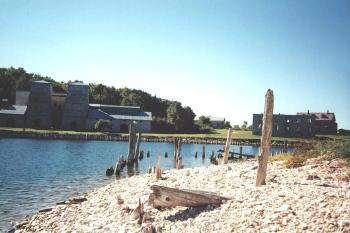
Ships tied up to wharves in the harbor, now rotting quietly in place. They delivered supplies to the complex while transporting away newly produced pig iron. Nearly a quarter of a million tons left this port between 1867 and 1891. Smelting took place on-site in blast furnaces (on the left side of this photograph).
Workers harvested adjacent hardwood forests to fuel the tremendous fires that melted iron ore. They also quarried limestone rock used to purify it. The natural harbor, available fuel and abundant minerals all contributed to Fayette Brown selecting this location. Smelting onsite was much cheaper and more efficient than transport raw ore to distant locations.
A Company Town
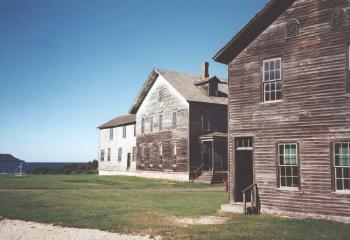
The Jackson Iron Company built a centrally located two-story wooden building within the complex as its office. From here, managers oversaw smelting operations and shipped pig iron to steel-making centers around the Great Lakes. They also owned and operated the company town. In that sense they provided every service required for the basic health and safety of the workforce.
Housing
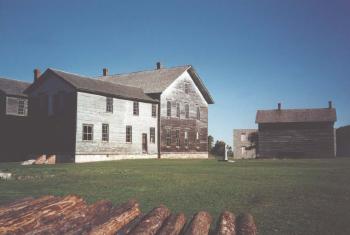
Common laborers lived in dormitories and boardinghouses. This large wooden building with two wings in the shape of a U, held the many young men who work long, tiring hours at the blast furnaces. Professionals and tradesmen with families occupied middle-class cabins nearby. Fayette had few distractions. The company owned everything and the town existed solely for work.
Company Store
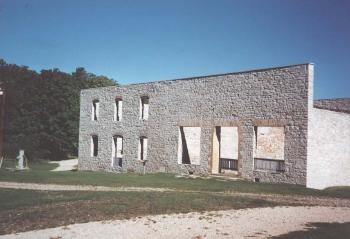
People didn’t get any options when they needed food or personal supplies either. The townsite didn’t exist for convenience. It was deliberately located near the natural resources required to smelt pig iron. This happened to be an out-of-the-way location.
The company provided a single store and no other choices unless people hiked or sailed to distant locations or arranged for items to be shipped to them. This large elaborate stone building provided sundries and sustenance. In that regard the Jackson Iron Company controlled commerce along with every other aspect of their worker’s daily lives.
Supporting Roles
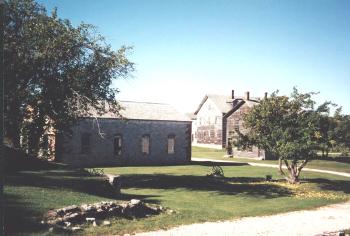
Not everyone worked near the heat of blast furnaces. Some occupations contributed supporting roles. The building in the foreground served as a machine shop where parts could be crafted or repaired on the spot as necessary. The town needed to be self-sufficient. Too much money would be lost if furnaces had to shut down for lack of parts. Shipments from Escanaba or even more distant locations would take too much time.
The company also needed carpenters, blacksmiths, and people to care for horses and stock animals. They also employed woodcutters and quarrymen. The lucky few managed operations or filled professional positions such as doctors.

Leave a Reply